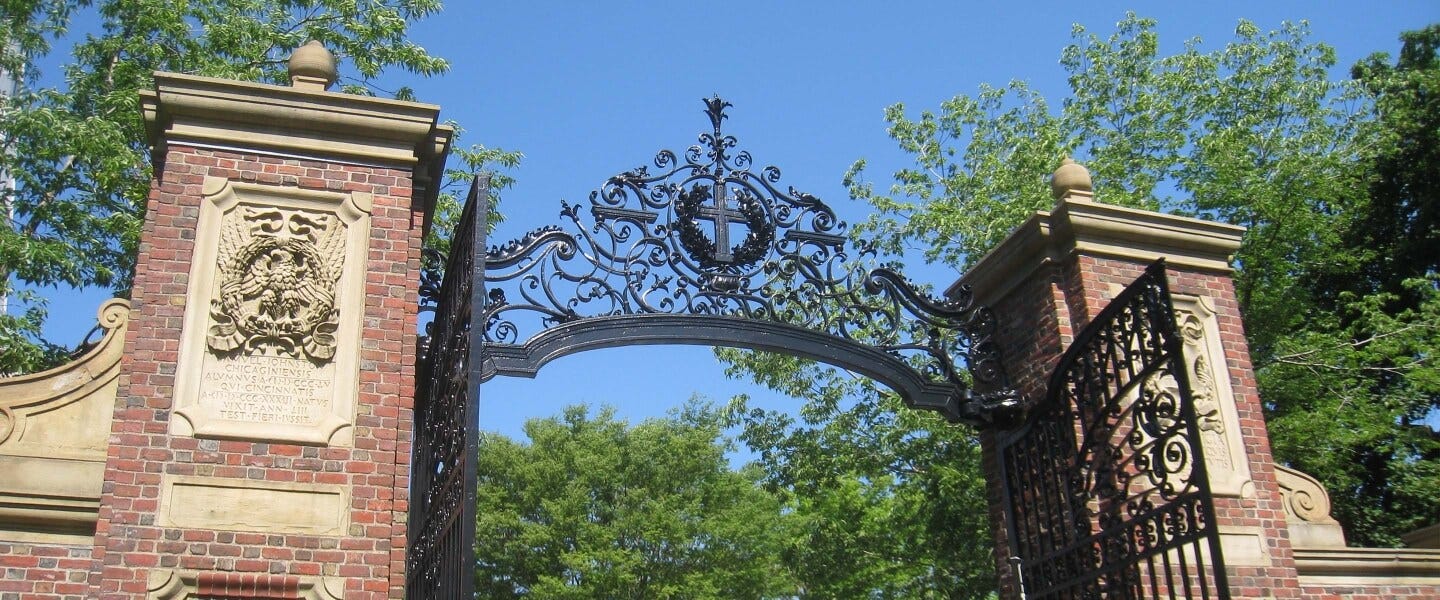Ackman Agonistes
The hedge fund billionaire isn't dying, but he's experiencing a sort of deathbed conversion about plagiarism, in the worst tradition of his alma mater.
I wish I’d kept a copy of my 1976 Harvard freshman handbook. I don’t remember the precise wording of its policy on plagiarism, but the gist was: Burn down Memorial Hall or murder your roommate and all shall be forgiven, BUT if you commit plagiarism university administrators will tear out your viscera and set fire to them while you stand on your head in the middle of Harvard Yard.
When, a quarter century later, I consulted Harvard’s handbook for a freshman composition course that all undergraduates were required to take, the language had been toned down, but only slightly:
Harvard policy requires instructors to report all suspected cases to the Dean of the College, and most such cases are ultimately adjudicated by the Administrative Board. If the majority of Board members believe, after considering the evidence and your own account of the events, that you misused sources, they will likely vote that you be required to withdraw from the College for at least two semesters. Since a vote of requirement to withdraw is effective immediately, you lose all coursework you have done that semester (unless it’s virtually over), along with the money you have paid for it. You must leave Cambridge; any return to campus will violate the terms of your withdrawal. You must find a full-time job, stay in it for at least six months, and have your supervisor send a satisfactory report of your performance in order to be readmitted. … Finally, any letter of recommendation written for you on behalf of Harvard College—including letters to graduate schools, law schools, and medical schools—will report that you were required to withdraw for academic dishonesty. [Italics in the original.] If you are required to withdraw for a second time, you will not, ordinarily, be readmitted.
Harvard has softened its language further since then, but it’s still pretty tough:
Students who, for whatever reason, submit work either not their own or without clear attribution to its sources will be subject to disciplinary action, up to and including requirement to withdraw from the College.
The difficulty with this policy for at least two decades has been that Harvard (and, I suspect, most universities, especially the most prestigious ones) do not apply anything even vaguely resembling this standard to faculty members and administrators who plagiarize.
Notably, although Harvard tells undergraduates that it’s still plagiarism if you commit it unintentionally (“Plagiarism is defined as the act of either intentionally OR unintentionally [italics mine] submitting work that was written by someone else”), whenever a faculty member (or, in the case of Claudine Gay, president) gets caught doing it, a distinction spontaneously emerges wherein unintentional borrowings do not constitute plagiarism, but rather “duplicative language” (as the Harvard Corporation initially described Gay’s misdeed). Harvard has experienced a string of faculty plagiarism scandals over the years, involving Doris Goodwin (at the time a member of Harvard’s Board of Overseers), the late Charles Ogletree, Laurence Tribe, and … I lost track after that until the Gay case. Goodwin was dismissed from the Board of Overseers after the Harvard Crimson editorialized against her. The others received a slap on the wrist. It got so bad that somebody created an online Harvard Plagiarism Archive (now, alas, defunct). After the Ogletree incident, the Crimson editorialized, quite rightly, that
If Harvard is not willing to hold its Faculty to the same high scholarly standards as it does its students, then perhaps it should rethink its undergraduate plagiarism policy and do away with the charade of irreproachable academic integrity.
This is not, sadly, the position the Crimson editorial board took in the Gay case, where it was a tower of jelly (“She Should Stay. For Now”). But the paper did run this op-ed, written anonymously, describing the mismatch between how student cases and faculty/administrator cases of plagiarism are punished.
Now Bill Ackman (Harvard class of 1988), a leading Gay critic who, in trying to oust her in December cited, among other items, her plagiarism, specifically ridiculing Harvard’s reluctance to acknowledge that unintentional “duplicative language” constituted plagiarism, and pointing out the double standard—now Ackman has experienced a sort of deathbed conversion on the subject because it turns out Mrs. Ackman, a former MIT professor named Neri Oxman, got busted by Business Insider for plagiarism. Ackman has taken to Twitter/X at length to explain his new position, which boils down to “It isn’t plagiarism when it’s committed by my wife.” Proving, I guess, that he’s a Harvard man after all. In my latest New Republic piece, I read these tweets so you don’t have to and illuminate their many contradictions and absurdities. Why anyone professing concern about anti-Semitism remains on Twitter/X in the first place is, as I’ve noted previously, a mystery. You can read my new piece here.



Very interesting. And what a great piece in The New Republic!